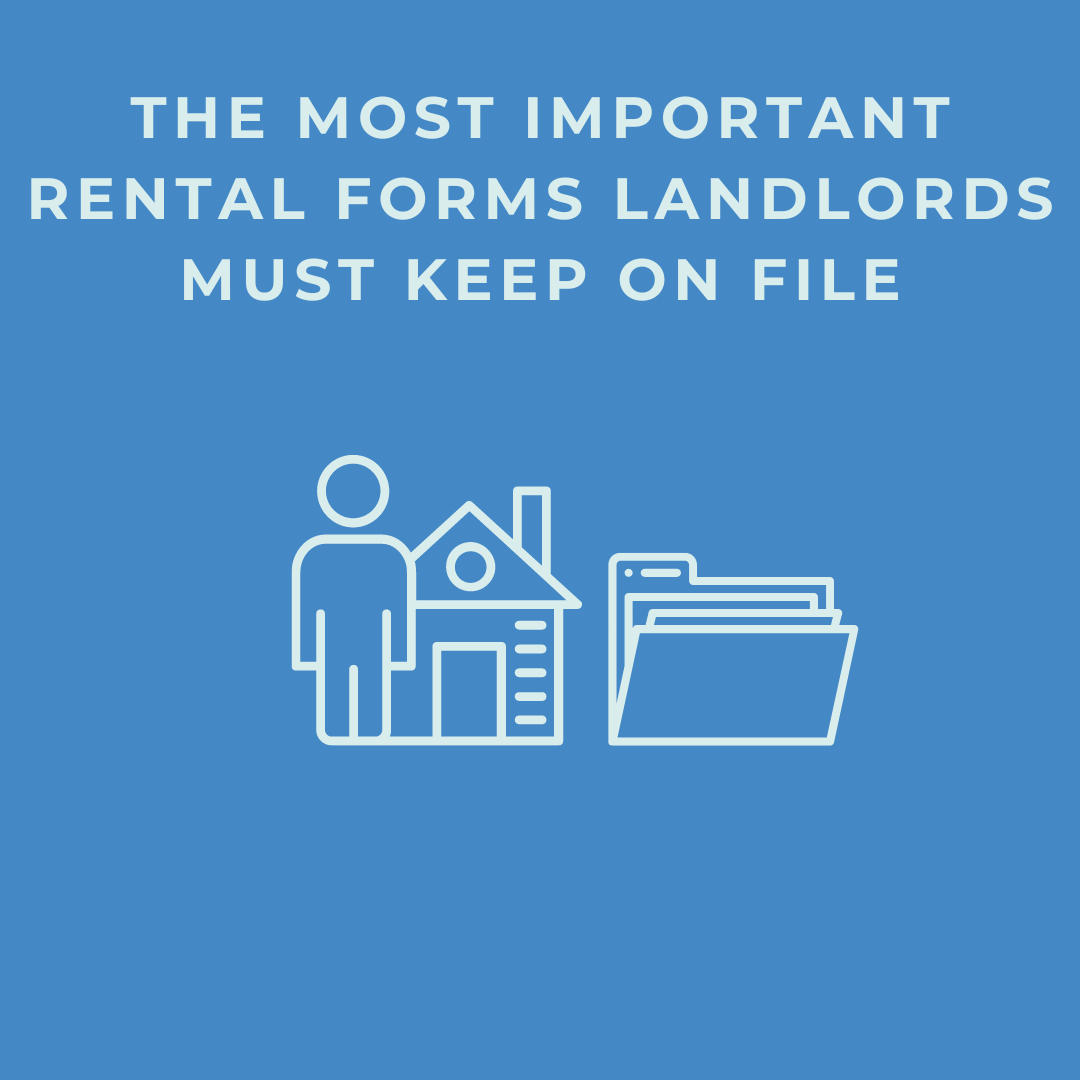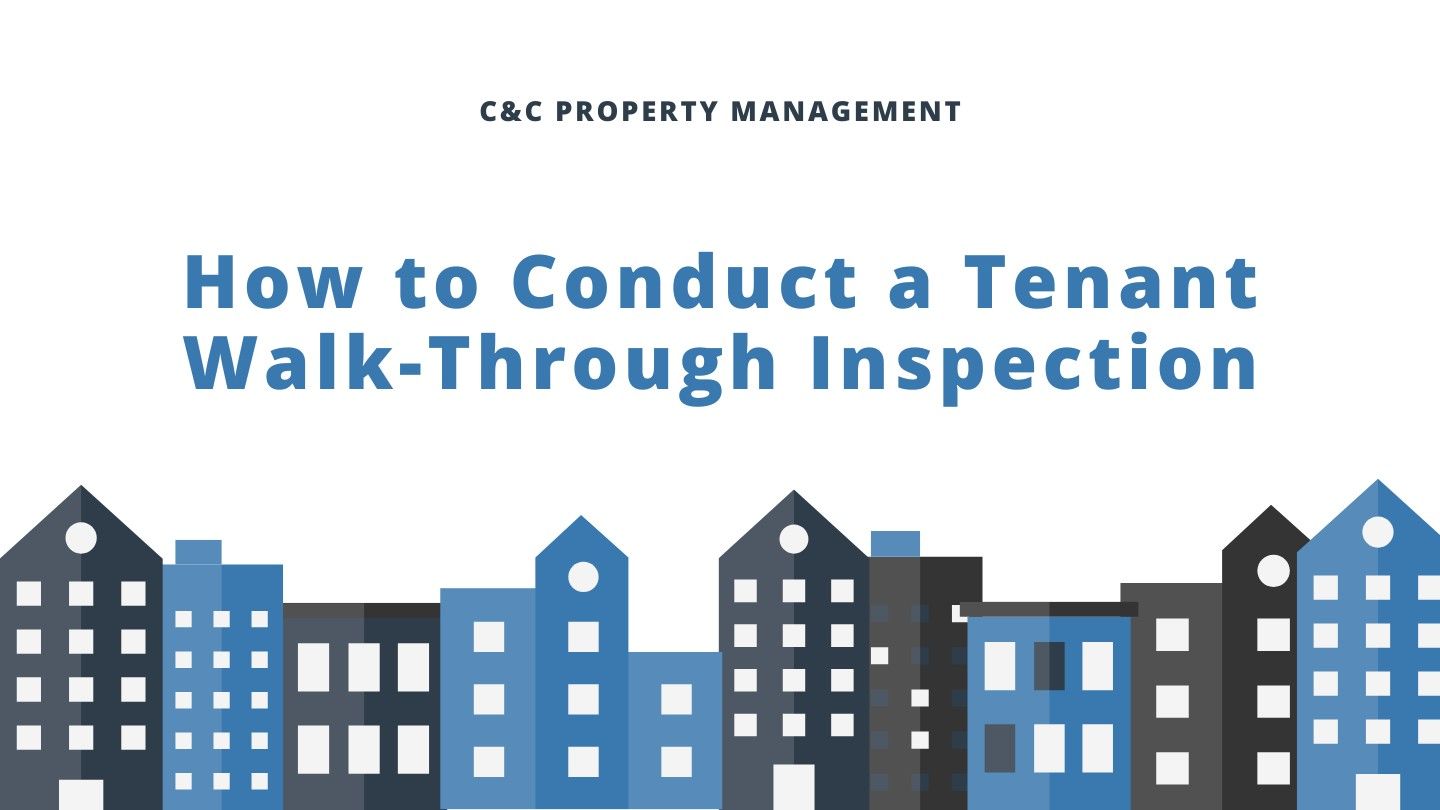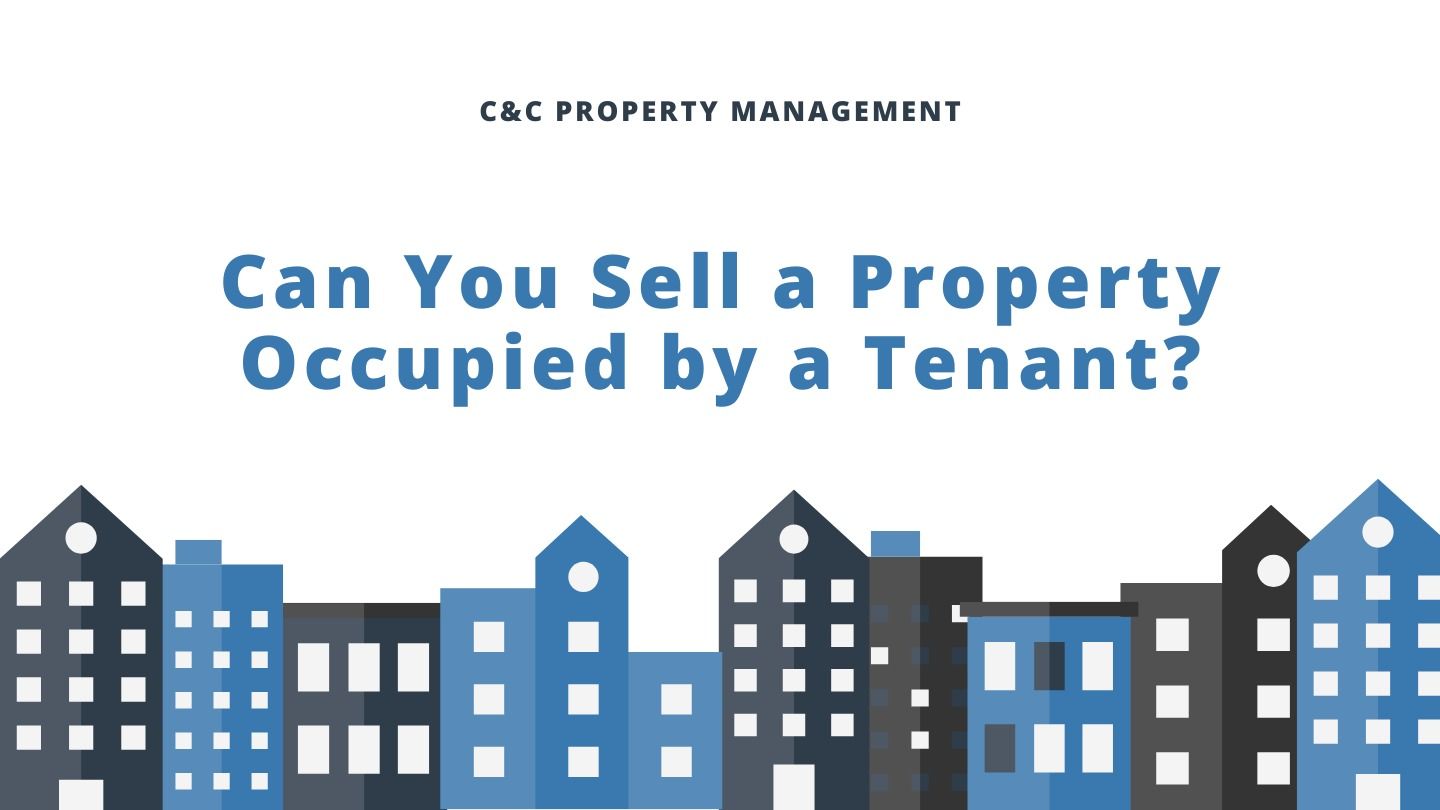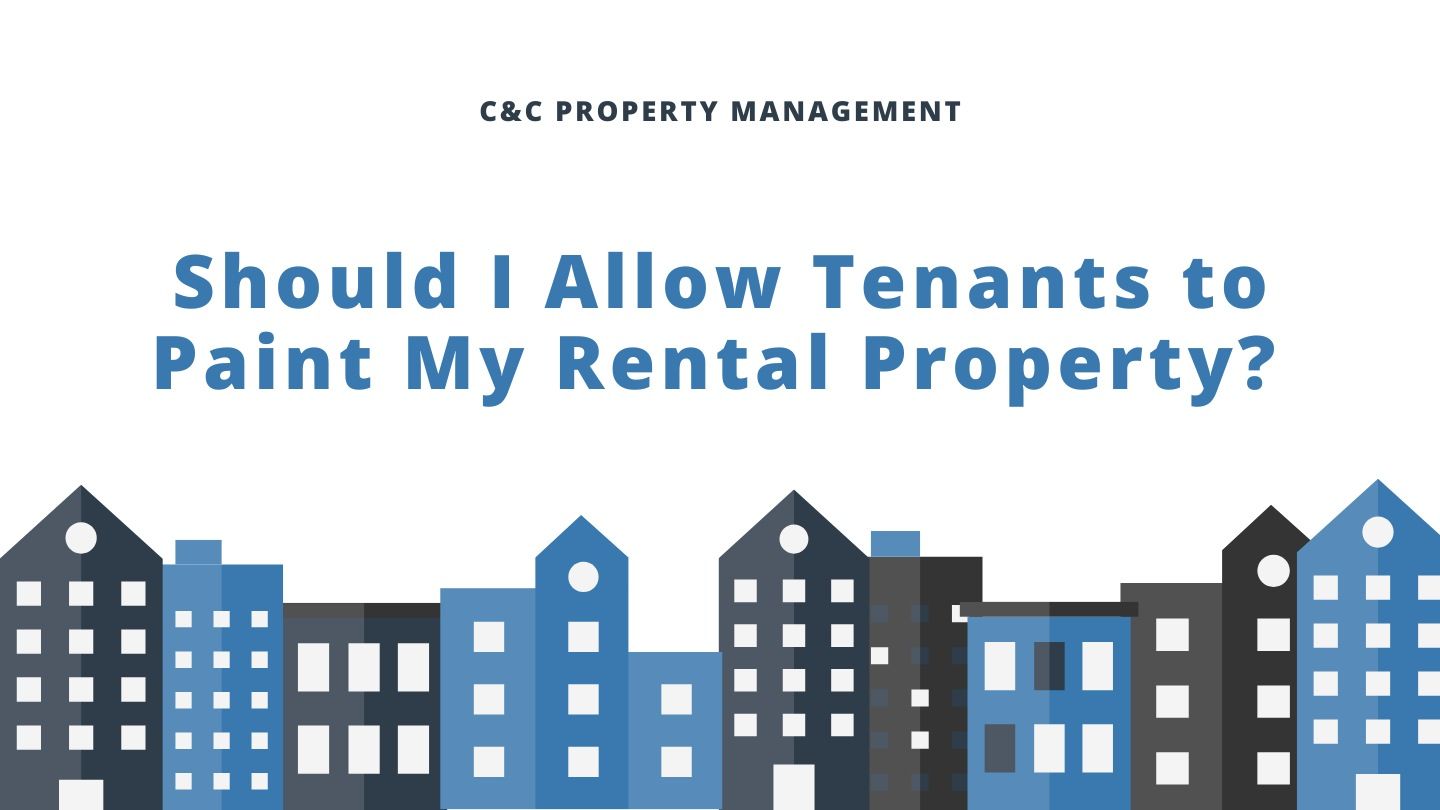The Most Important Rental Forms Landlords MUST keep on file
As a landlord, you have a lot of responsibilities.

Not only do you need to make sure your property is in good condition, but you also need to be familiar with the laws governing rental properties in your area. One important part of being a landlord is keeping records of everything related to your property and its tenants. This includes maintaining copies of key documents such as leases and rental agreements.
If you're not sure which forms are most important for landlords to keep on file, here's a list of essential documents every landlord should have:
Rental application
Your rental journey starts with the tenant application form - an essential document that provides you with invaluable insight into your prospective tenants. Collecting this information allows landlords to make informed decisions and find reliable, trustworthy renters for their property!
Maximizing your rental application's potential begins with having the right information. Asking questions that are pertinent to each property and tenant speeds up the process, so utilize a universal template for all renters! Having one form keeps matters consistent as you ensure applicants meet fundamental requirements throughout every stage of their journey.
Lease agreements and addenda
A lease agreement is an essential document in any rental situation. It serves as a legally binding contract between parties, outlining the conditions of their relationship during the duration of the tenancy period and establishing clear expectations for all involved.
The best way to ensure a successful landlord-tenant relationship is by having both parties sign off on a written lease agreement. Doing so will provide security and assurance, while also establishing accountability between the two sides involved. Additionally, make sure to store both physical and digital copies of your rental agreement for the entire duration of tenancy – this serves as excellent backup record keeping in case matters arise down the road!
To ensure your lease remains in compliance with all legal requirements, it's vital to hold onto any amendments or addendums that modify the original agreement. Once signed off on by both parties, these documents become integrated into the initial contract so you don't want to risk misplacing them and voiding their legitimacy.
Eviction notice
Despite the potential of rental properties to be an excellent investment, eviction can still occasionally become a reality. Unfortunately, some tenants may stop paying rent or cause damage that requires landlords to take steps towards their removal in order for them to protect not just their income but also the condition of their property.
Landlords have the responsibility of delivering eviction notices to tenants, specific document requirements varying across states and municipalities. To ensure compliance with regulations, it is important for landlords to keep records on each occurrence including date sent/received as well as any subsequent actions taken.
To ensure a prompt resolution when sending out an eviction notice, create a template ahead of time so that you don’t miss any important details. Make sure to include the relevant turnover period as mandated by your state in order for it to be legally binding.
Adverse action letter
When multiple potential tenants apply for a rental property, it can be difficult to choose the perfect tenant. To ensure fairness and transparency in this process, an adverse action letter must be sent to those applicants who do not meet your criteria for renting. This document outlines why their application was denied – such as by reference of background checks or credit score from third-party screening services – while also providing them with information on how they may dispute any incorrect results if applicable.
In writing this letter, it's imperative to be mindful of the Fair Housing Laws and their protected classes which cannot serve as reasons for a tenant's rejection. These include but are not limited to race, color, sexual orientation, religion etc., thus reaffirming our commitment to creating an inclusive living environment with zero discrimination on any grounds whatsoever.
Late rent notice
Understanding your tenant's obligations is essential in being a successful landlord. That’s why the late rent notice should be included among your rental forms – it informs renters of their payment obligations and provides consequences if they fail to meet them. This form can help you maintain effective communication with tenants while ensuring that payments are effectively collected on time!
Late rent notices are an important legal document that must be sent to tenants if they have not paid their rent in accordance with the agreement. Such documents serve as a warning, containing all necessary information such as
- when payment was due
- what fees were assessed for late payments.
These forms also explain potential consequences of nonpayment or failure to move out from the property: landlords can file for eviction proceedings against delinquent renters according to local laws. It is essential that these warnings are presented clearly and without ambiguity since ignoring them could lead to costly court battles down the road.
Lease renewal
Keep communication open and consistent with your tenants by sending out lease renewal notices. This way, you can ensure that all parties are informed of any changes or different plans than originally agreed upon.
Property owners must stay up-to-date on the expiration of their leases and make sure they are prepared with all necessary documents. Lease renewal notices provide an essential resource to help keep track, as they usually include details such as
- the address of the property
- whether you intend to renew or end your lease
- and contact information for updates
- or other queries.
Renewal of the lease may be a viable option, in which case it's necessary to advise your tenant on how and when that will take place. Furthermore, you must outline if any new agreements are required along with whether or not rent increases (and their associated timelines). However; should renewal options be unavailable then similarly needful information needs to be made known - i.e., why such an outcome has transpired together with plans as far as move-out is concerned plus details regarding refunds for security deposits.
Move-in and move-out checklist
As a landlord, accurately documenting each property's condition is paramount to long-term success. A comprehensive move-in/move out and general inspection policy can protect you from potential damage claims with detailed checklists that account for every area of the rental unit. Having this information empowers you to make repairs promptly while making sure security deposits are returned appropriately should tenants meet their obligations upon exiting your units.
Property inspections are vital to understanding a rental's condition and identifying potential issues. Keeping an up-to-date checklist covering every room, unique areas of the property, exterior components as well as big systems like plumbing is essential in ensuring nothing has been overlooked. By remaining current your inspection process will be comprehensive and complete!
Rent receipt
As a landlord, it's important to provide tenants with proof of rent payments - and that's exactly what rent receipts do. Whether you use online services or offline payment methods such as cash or check transfers, the receipt serves as an official record for both parties confirming transactions have occurred. Letting your renters keep their own copies is paramount in ensuring clarity between tenant and landlord on all financial dealings related to rental property ownership.
Even if a tenant says they do not need a receipt, it’s a good idea to generate and provide one to all involved parties. This record ensures you can prove when money was (or was not) received.
Notice to quit
As a Landlord, it is essential to produce comprehensive notices that clearly outline which violations have occurred and the expected resolution. This document must inform tenants of the stipulations for them to remain in compliance with their lease terms; if there is an opportunity for rectifying any mistakes or offences, this should also be included within the notice.
It's necessary such notifications are made promptly so all parties understand what will happen next when rules are broken - otherwise further legal issues may arise down-the-line.
Ensuring that your notice to evict is precise and compliant with local laws will help you save time and money by speeding up the eviction process. Including a copy of the original lease contract, along with clearly identified sectional violations, allows tenants to quickly comprehend their offense so they are less likely to challenge it in court.
Tenant screening checklist
Protecting your property investments is as easy as having a comprehensive tenant screening process in place. Ensure that you are selecting the most suitable tenants through your checklist, which should cover essential areas such as their financial standing, employment history and credit report analysis.
Utilizing these key items for review can help streamline the selection process and provide assurance of quality occupants for each rental unit or apartment.
- Credit score
- Eviction history
- Rental history
- Background check
- Landlord references
- Employer references
- Income-to-rent ratio
Evaluate a potential tenant's fit for your property using the provided information to make an informed decision. Make sure this renter meets all criteria so that you can have peace of mind knowing your home or business is in reliable hands.
Why Landlord Forms are essentialLandlord Forms are essential tools for protecting both you and your tenants. Without them, agreements cannot be legally enforced - missing out on crucial steps to ensure peace of mind when renting a property or managing tenancy arrangements. Ensure that the right forms are in place today!
1. Clarity and accountability
Documentation is essential for rental agreements as it promotes transparency, accountability and clarity. Having a record of the terms allows all parties to easily refer back to them in case something goes wrong during the rental period; ensuring everyone understands how the agreement works when resolving any disputes that may arise.
2. Proof of rental conditions and notices
Legally protecting yourself is key when it comes to tenant and contractor litigation. Accrued paperwork from the initial agreement serves as evidence that all parties had agreed upon terms - a necessity for successful court proceedings. To reduce your risk of an unfavorable ruling, ensure you have saved every signed document related to the rental property's occupancy in order to confirm with certainty what was originally accepted by both sides involved in this case.
3. Uniformity
Successfully managing rental properties requires an eye for detail and meticulous record-keeping. To ensure consistency across all documentation, setting up templates of standard landlord forms can be a game changer in streamlining processes. It's easier to review documents when you know where the terms are located, while pre-formatted paperwork reduces time spent creating new agreements from scratch - letting property owners get straight to signing faster than ever before!
4. Record keeping
Make your landlord business easier to manage with a well-organized system of filing documents. You'll be able to keep track of financial information like rent increases, security deposits and more--without having to search long and hard for the right document! Plus, you can streamline money collection or return processes by making sure compliance forms are in order.
Thank you for reading our blog post on the most important rental forms landlords MUST keep on file. We hope that this information is helpful in protecting your property investments. Be sure to check out our website and youtube channel for more content, and follow us on social media for updates!








